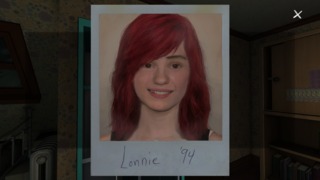Carolyn Petit's Top 10 Games For 2013
Adventures in intimacy.
Like most years, 2013 had plenty of games that let me escape into grand adventures and magical worlds, and some of these games are among my favorites of the year. Rogue Legacy made my free hours disappear by the dozens. Spelunky, that masterpiece of elegantly interlocking systems, saw its best release yet on the Vita, where my friends and I could venture forth together, each of us able to explore freely on our own screens. And Nintendo rekindled my childlike love for them yet again with terrific entries in franchises I've been playing since I was a child.
But what set 2013 apart for me were the games that did things that felt entirely unburdened by our preexisting notions of what games can be. In Depression Quest, creators Zoe Quinn and Patrick Lindsey drew on personal experiences to open up the struggle with depression to players in a way that was honest, accessible, and powerful. Simogo's stylish iOS game Device 6 used text in a wonderful way, making exploring the pages of its narrative really feel like exploration. It also told a terrific tale about playing and being played, and it had the most stunning ending of any game I played this year.
Kentucky Route Zero is still incomplete, but it has already established itself as something beautiful and special, a road trip tale through parts of America that are both recognizable and magical, both wondrous and deeply sad. The Stanley Parable made me think about the nature of choice in games like no other game has, while also making me laugh more than any other game I've ever played.
And then there's Gone Home.
In subtle ways, it reminds me of other games I've played. Myst, for instance, and Dark Souls, games whose environments I loved being in because I could feel the story they had to tell emanating from every surface. In Gone Home, that kind of environmental detail is done better than any game has done it. The house is empty, but it thrums with the energy of its inhabitants.
I love that Gone Home demonstrates that just as players of all genders can often find things to relate to in game narratives that focus on men, players of all genders--provided they're open to it--can find things to relate to in stories that focus on women. Gone Home gives all of its characters, women and men, the gifts of humanity and complexity.
But I also acknowledge that my reactions to the game are personal. I don't apologize for that; I think the fact that it elicited such personal reactions from so many players speaks to its greatness. It's not the fact that it's a story about queer women that makes it special. It's the fact that it gets so many of the emotional details (as well as the environmental ones) just right, creating a narrative that many of us could see ourselves reflected in. I didn't know how badly I wanted that experience until it happened.

My family was nothing like the Greenbriars, and our house was nothing like their house, but I was a teen in the '90s, and in Sam's experiences I see reflected not experiences I had but experiences I wished so badly that I could have had. Given the strange assortment of experiences I've had and haven't had, in many ways I still feel like a teenager, fumbling to figure things out. So for me, the definitive piece on Gone Home is by game designer and trans woman Merritt Kopas. She writes, "I want to be Sam. I want to be present in my youth. I want a riot grrl romance. I want to make zines and go to girl band gigs and dye my (girl)friend’s hair. But I can't have that, not in the way that part of me still desperately wants it: it's not the 90s, I'm not a teenage girl, and neither of those things is ever, ever going to change. That's something I'm still dealing with."
"But ultimately, Gone Home left me hopeful rather than grieving. Hopeful about storytelling and games, and hopeful about my own experiences. Because obviously we can't go back home, into our pasts, and change things--like Katie, all we can do is observe, witness, and turn things over in our heads until they make a kind of sense that we can work with. But we can write new stories, ones where girls in love don't die tragic deaths and where big empty houses are scary but ultimately safe and where you can have a teenage girl romance at 25, or 35, or whenever you want to."
Maybe Gone Home's coming-of-age story resonated with me more deeply than most because, although I'm older than she is, I'm still experiencing some of the feelings that Sam experiences in the game. In a very real way, I'm still coming of age myself. In any case, playing Gone Home hurts a little. Thinking about Gone Home hurts a little. But it is a cathartic pain, a kind of grief that leaves me feeling a little more free of the past, a little more open to the possibilities of the future.
For me, 1995 and 2013 belong to Sam and Lonnie.
Got a news tip or want to contact us directly? Email news@gamespot.com
Join the conversation